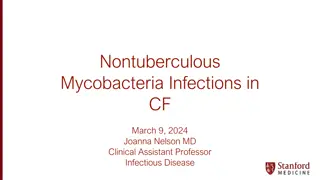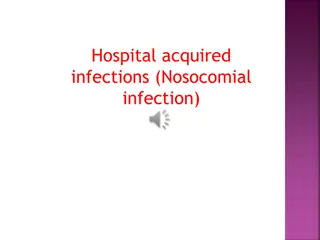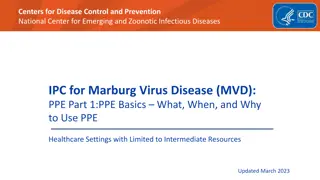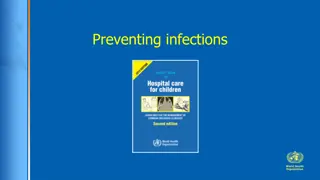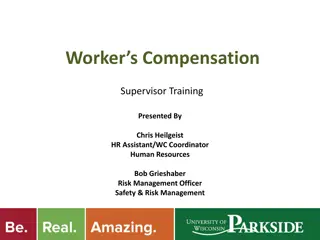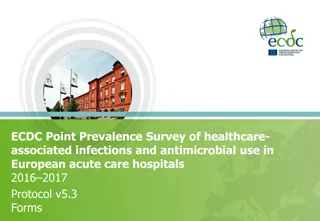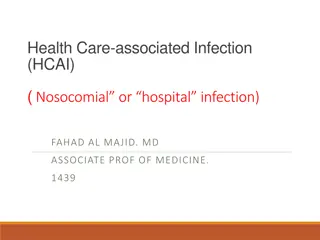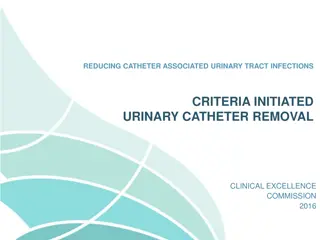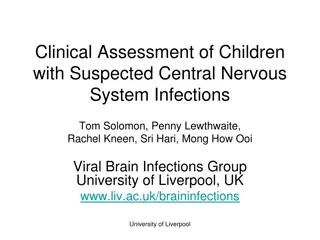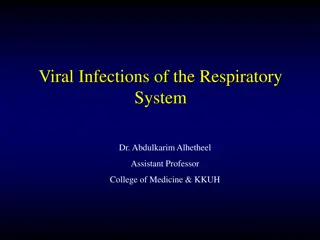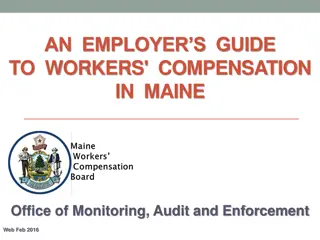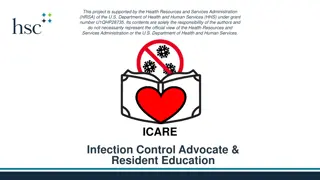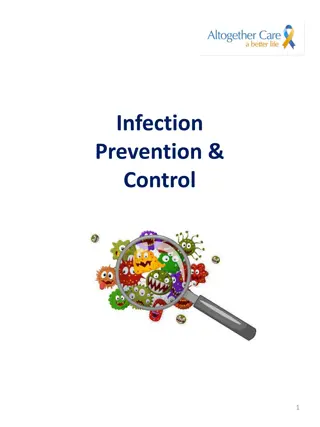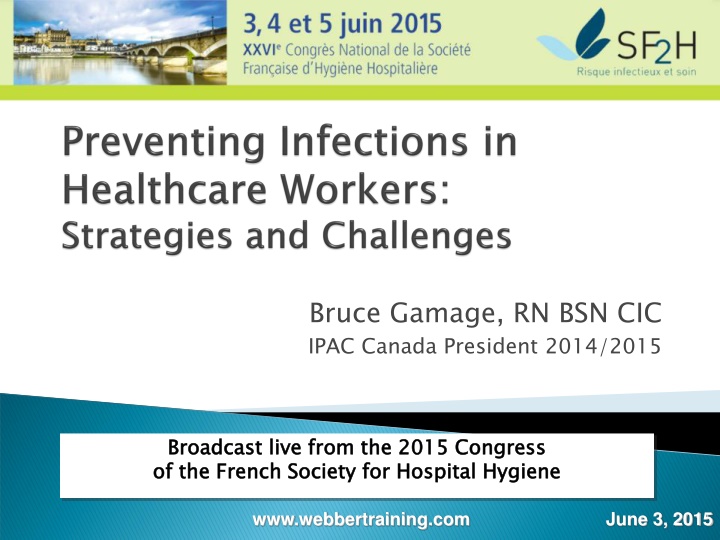
Challenges in Healthcare Infection Control Protocols and Strategies
Explore the obstacles faced by healthcare workers in adhering to infection control protocols, including lack of consequences, fear-driven behaviors, and the limited sustainability of traditional education and incentive methods. Discover the potential impact of media campaigns on promoting lasting behavior change in healthcare settings.
Download Presentation

Please find below an Image/Link to download the presentation.
The content on the website is provided AS IS for your information and personal use only. It may not be sold, licensed, or shared on other websites without obtaining consent from the author. If you encounter any issues during the download, it is possible that the publisher has removed the file from their server.
You are allowed to download the files provided on this website for personal or commercial use, subject to the condition that they are used lawfully. All files are the property of their respective owners.
The content on the website is provided AS IS for your information and personal use only. It may not be sold, licensed, or shared on other websites without obtaining consent from the author.
E N D
Presentation Transcript
Bruce Gamage, RN BSN CIC IPAC Canada President 2014/2015 Broadcast live from the 2015 Congress of the French Society for Hospital Hygiene Broadcast live from the 2015 Congress of the French Society for Hospital Hygiene www.webbertraining.com June 3, 2015
I have no disclosures I have a French name, but I don t speak French 2
Why dont healthcare workers follow infection control protocols? What hasn t worked? What strategies have promise? Let s talk about Ebola Lessons learned 3
People dont do what they dont have to For the most part there are no consequences There are no immediate impacts No one is watching 5
There is fear There is media attention E.g. SARS, H1N1, Ebola Leads to over-reaction We saw very high vaccine rates during H1N1 HCW demanded highest level protection during SARS and Ebola outbreaks
We assume that if we provide healthcare workers with education they will follow the protocols Time and time again this hasn t worked Influenza shots Hand Hygiene compliance 8
Posters Campaigns Incentives All have short term effects, but compliance always returns to baseline after short term improvements 9
Healthcare workers do change their behaviour based on fear and media but this is not sustainable Need people to understand that there is always threats to their lives Media campaigns can work Seatbelts Drunk driving Cigarettes Safe Sex Resulted in cultural shift but takes a long time 11
Loss of admitting privileges Loss of job Has worked in some US hospitals influenza vaccine rates of 99.9% 12
Direct observation of healthcare workers has worked to increase hand hygiene compliance Public reporting of infection rates/hand hygiene compliance rates Competition between units But there is the Hawthorne effect 13
Has had some success in getting improved compliance PD doesn t come up with new IC interventions All interventions are already proven effective in literature Individuals need to come up with interventions that work within their micro-culture PD is best applied to complex problems that are deeply rooted in culture 16
How do you know when someone has an infection? What do you do to protect yourself and others from this infection? What keeps you from doing this every time? Who do you know who seems to do a better job? Does anyone have any ideas about what we should do next? 17
Evidence or fear based approach? We know that Ebola is spread by droplet and contact transmission (not airborne) But patients who are acutely ill are having projectile vomiting and explosive diarrhea.. 20
Patient travelled from Liberia Sent home initially returned with advanced symptoms and died 2 nurses infected None of his close contacts in the community became ill 22
Fear and overreaction No skin in the game Differentiation between low transmission risk ( dry ) and high transmission risk ( wet ) patients Recognition that the greatest danger is in late stage disease with copious body fluids, particularly vomitus and bloody diarrhea Importance of fluid impermeable PPE 23
Can it be airborne? Need for respirators Can we be ready everywhere? Centralized care versus regional model We will need to be prepared 24
Educating healthcare workers doesn't get them to change behaviour Campaigns work but are short-lived Negative consequences seem to be the strongest motivator Healthcare workers are most likely to follow protocols when they are afraid for their own safety We need to effect change at a cultural level 26



